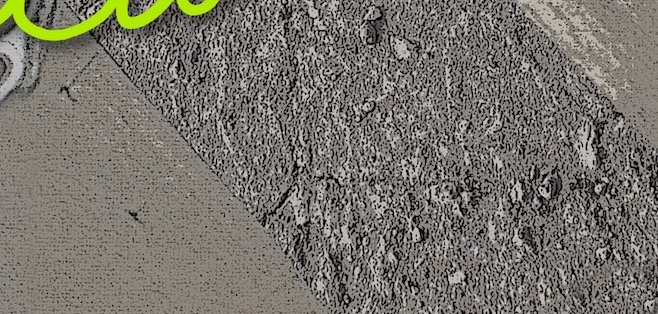Education, resistance and intersectionality: life story of a Venezuelan woman with Down Syndrome
[II PREMI PERE PUJOLÀS]
DOI:
https://doi.org/10.32093/ambits.vi5850487Keywords:
Intersectionality, gender, migration, disability, identity, resistance, educationAbstract
This paper presents a biographical-narrative investigation that aims to elaborate the life history of Corina, a Venezuelan woman with Down Syndrome and, at the same time to know the impact that the different axes of oppression experienced have on her, both in the construction of their identity and resistance mechanisms, as well as in her educational experience and her adult life from an intersectional perspective.
Data are collected through biographical interviews and an interpretive analysis based on the Voice- Centered Relational Approach (VCR) is performed. Through Corina's voice, we immerse ourselves in an intense story that addresses, among other topics, uprooting, first love, art, professional deconstruction, harassment or segregation in the educational field. But, above all, Corina takes us to a stage full of possibilities, resistance and the desire to belong.
This research aims to be a sample of counter-hegemonic construction of identity and an invitation to personal and professional deconstruction, opening the door to issues such as the identification and understanding of the resistance exerted by historically oppressed groups, the lack of accessibility in educational research and, above all, the need to listen.
References
Agencia Europea para las necesidades educativas especiales y la inclusión educativa (2018). Pruebas de la relación entre la educación inclusiva y la inclusión social: informe resumen final. (S. Symeonidou, ed.). Odense, Dinamarca.
Bolívar, A. (2002). “¿De nobis ipsis silemus?”: Epistemología de la investigación biográfico-narrativa en educación. Revista Electrónica de Investigación Educativa, 4(1), 2–26.
Calderón-Almendros, I. & Calderón-Almendros, R. (2016). «I open the coffin and here I am»: disability as oppression and education as liberation in the construction of personal identity. Disability&Society, 31(1), 100-115.
Calderón, I. (2014). Educación y esperanza en las fronteras de la discapacidad. Estudio de caso único sobre la construcción creativa de la identidad. Cinca.
Calderón, I. (2015). Sin suerte, pero guerrero hasta la muerte. Educación, pobreza y exclusión en la vida de José Medina. Octaedro.
Calderón, I. (2016). Fracaso escolar y desventaja sociocultural. Una aproximación biográfica. UOC.
Carballo, P. (2021). Historias de vida de jóvenes con discapacidad visual. Universidad de Vigo.
Collins, P. H., & Bilge, S. (2019). Interseccionalidad. Morata.
Contreras, J., & Pérez de Lara, N. (2013). La experiencia y la investigación educativa. En J. Contreras y. N. Pérez de Lara (Ed.), Investigar la experiencia educativa (Segunda edición, pp. 21–83). Morata.
Crenshaw, K. (1991). Mapping the Margins: Intersectionality, Identity Politics, and Violence against Women of Color. Stanford Law Review, 43(6), 1241-1299.
Crenshaw, K. (2002). Documento para o encontro de especialistas em aspectos da discriminaçao racial relativos aogênero. Estudos feministas, 171, 171–188.
Cho, S., Crenshaw, K., & McCall, L. (2013). Toward a field of intersectionality studies: theory, applications, and praxis. Signs: Journal of Women in Culture and Society, 38(4), 785-810.
Davis, K. (2008). Interseccionality as buzzword: a sociology of science perspective on what makes a feminist theory successful. Feminist theory, 9(1), 67-85.
Foucault, M. (2002). Vigilar y castigar. Nacimiento de la prisión. Siglo veintiuno.
Freire, P. (2018). Pedagoxía do oprimido. Kalandraka.
Giroux, H. (1997). La pedagogía radical como política cultura: más allá del discurso de la crítica y del antiutopismo. En P. McLaren (Ed.), Pedagogía crítica y cultura depredadora. políticas de oposición en la era posmoderna (1a edición, pp. 47- 78). Paidós Educador.
Giroux, H. (2008). Introducción: Democracia, educación y política en la pedagogía crítica. En P. McLaren & J. L. Kincheloe (Eds.), Pedagogía crítica. De qué hablamos, dónde estamos (pp. 17-24). Graó.
Giroux, H. (2011). Teoría y resistencia en educación. Siglo Veintiuno.
Goffman, E. (2019). Estigma. La identidad deteriorada. Amorrortu.
Hooks, B. (2003). Understanding Patriarchy. NO BORDERS Louisville Radical Lending Library. Recuperado 17 de agosto de 2022.
https://imaginenoborders.org/pdf/zines/UnderstandingPatriarchy.pdf
McLaren, P. (1997). Pedagogía crítica y cultura depredadora. Políticas de oposición en la era posmoderna. Paidós educador.
Moriña, A. (2017). Investigar con historias de vida. Metodología biográfica-narrativa. Narcea.
Parrilla, Á. (2009). ¿Y si la investigación sobre inclusión no fuera inclusiva? Reflexiones desde una investigación biográfico-narrativa. Revista de Educación, 101–117.
Rodó-Zárate, M. (2021). Interseccionalidad. Desigualdades, lugares y emociones. Bellaterra.
Sandoval, M., Simón, C., & Echeita, G. (2019). Educación inclusiva y atención a la diversidad desde la orientación educativa. Síntesis.
Skliar, C. (2013). Fragmentos de experiencia y alteridad. En C. Skliar& J. Larrosa (Eds.), Experiencia y alteridad en educación (pp. 147–166). Homo Sapiens.
Taylor, S. J., & Bogdan, R. (2002). Introducción a los métodos cualitativos de investigación. La búsqueda de significados. Paidós.
Terrón-Caro, T., Cárdenas-Rodríguez, R., & Ortega-de-Mora, F. (2022). Voces de mujeres migrantes. Enfoque de género en el análisis migratorio. Cuestiones Pedagógicas. 1(31), 3–20.
Trujillo, M., & Almeda, E. (2017). Monomarentalidad e imaginarios de género en contexto migratorio: Punto de vista epistemológico feminista en el estudio de las migraciones. Empiria. Revista de metodología de ciencias sociales, 37, 101–125.

Downloads
Published
Issue
Section
License
The authors maintain their copyright and give the right to the first publication of the work to the journal, registered under a Creative Commons Attribution-Non Commercial-NoDerivs license. This license allows others to download the works and to share them with others as long as they credit the author, but it does not allow for any kind of modification or commercial use.














